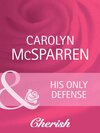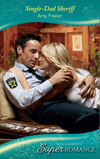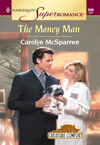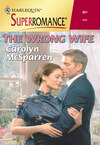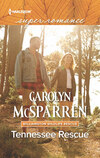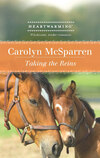Kitabı oku: «His Only Defense», sayfa 4
CHAPTER SIX
SYLVIA’S PARENTS, the Richardsons, lived in the less affluent section of Germantown. Their medium-size Georgian-style house was well-kept, but unremarkable.
The garden, however, was anything but unremarkable. Either the couple could afford a full-time gardener, or one of them worked continuously to manicure the lawn and the flower beds. Even in November, great clumps of gold and ochre chrysanthemums hadn’t quite finished blooming, and the pansies glowed.
Interesting. They were planted in strict groups sorted by color. Somebody had a thing for order.
The trees hadn’t been neglected, either. Liz wasn’t very good on horticulture, but even she could identify the glowing red of dogwoods and Japanese maples that still hadn’t lost their leaves. Each tree was carefully surrounded by a mulched circle planted with hostas and dwarf azaleas. There was no crab or orchard grass. Not one dandelion. This was property that would receive the yard of the month award more often than not. The gardener obviously had control issues. Whatever the rest of this person’s life was like, he—or she—could impose his will on this little patch. Shrubs didn’t talk back.
Liz wanted to see whether the backyard was as cultivated and staged, or whether the front yard—the one the neighbors saw—received all the attention.
She was reaching for the doorbell when a voice came over the intercom, startling her. “Miz Gibson?”
A female voice. Not young. “Mrs. Richardson?”
“I’m in my workshop out back. Come on around by the driveway and down the path past the fountain.”
Liz walked around the house. At first glance the backyard looked no different, but then she realized the deep lot was bisected—quadrisected, really. The same precision governed the plantings around the house and deck.
Beyond the section of lawn on the right side was an equally neat vegetable garden. Turnip greens, cabbage, winter squash and cauliflower still remained in the beds.
The left-hand quarter, however, looked as though it belonged to a completely different yard. She’d be willing to bet it belonged to a different gardener.
Although there were neat brick paths, instead of marching straight and intersecting at ninety-degree angles, they curved gently among deep beds of ornamental grasses and now-dying wildflowers. The paths met at an ornamental pond made to look like a natural pool fed by a small, mossy waterfall. When Liz leaned over it, fat, parti-colored koi rose up to see if she had any nibbles for them.
The pool would be cool and shaded in the summer when the big oaks were in full leaf.
At the very back corner stood another building. Not a shed, but a good-size A-frame structure of dark green stained board and batten, with a window wall facing the backyard and up the driveway.
Liz made a mental note to see how long the Richardsons had lived here. This could not have been accomplished in a day or even a year.
“Down here, Miz Gibson.” A tall woman in jeans and a hunter-green sweatshirt stepped from the side portico of the A-frame and motioned to Liz, then stood aside and let her enter ahead of her.
“In case you can’t tell, I’m a weaver.” Irene Richardson waved her hand at the room and laughed.
Diamond-shaped shelves built across the wall beside the door were stuffed with jewel-toned skeins of thick wool. A big bench loom faced the window wall at the front, and several pieces of equipment Liz assumed had to do with making yarn were positioned around the space. There was even an antique spinning wheel.
On the mantelpiece sat about twenty wooden candlesticks with tall ivory tapers in them. “They’re made out of old-fashioned wool spindles,” Irene said. “I collect them.”
A scarred harvest table, several pine chairs and a tiny kitchen unit ran along the back wall. Above hung more shelves overflowing with what looked like craft books. A gas fireplace with fake logs burned cheerily in the far corner. A worn club chair and a Lincoln rocker sat on either side of the hearth.
A number of colorful wool rugs hung on the walls, and bright shawls were tossed casually over the furniture. There were no pictures; the weavings were art enough.
“Incredible room,” Liz said. “Incredible yard, too. I’d love to see it in the spring.”
“Come back in April. Herb is always delighted to show off his handiwork. We’re on several garden tours every spring and summer, although I think it’s even prettier in the fall, when the leaves turn, and before the summer flowers die.”
“So he’s the gardener, you’re the weaver.”
“Not quite. The little bit around the cottage is mine. Takes almost no maintenance, and I can usually con Herb into doing that for me. I loathe gardening, with its dirty fingernails, aching knees and sweat.”
Liz wandered around, peering at the cloud-soft shawls draped over the chairs, and wondering whether Mrs. Richardson sold them. If so, whether she could afford to buy one. It wouldn’t do to ask now, but after the case was closed, she might inquire about price. “When did you start weaving?”
“Six years ago.” Mrs. Richardson sat in the rocker and motioned Liz to the club chair. “I either had to discover something to occupy my mind, or lose it. Simple as that. I took a continuing-education course in weaving, and six years later, this is the result.”
“Herb’s the gardener?”
“He’d always gardened, but he went crazy after—you know. Same reason.”
“So a year after.”
“It took us both a year before we could do anything besides sit and stare at the walls and bug the police.”
“After something like this happens, many couples split up. You’re still together.”
“That’s debatable.” Irene laughed, this time without mirth. Jud had laughed the same way. There wasn’t much comedy in this family. “We have a granddaughter who needs us. Jud needs me, too.”
“Just you?”
Irene sighed. Her shoulders sank, and for the first time, she looked her age. Liz had checked. She was sixty-two, her husband sixty-nine.
“I wanted to speak to you before Herb got hold of you. He’s so angry. He thinks Jud…did something to Sylvia. He’ll tell you a whole bunch of stuff that isn’t true, although I’m sure he believes every word.”
“You’re certain none of it is true?”
“Oh, absolutely. Jud wouldn’t hurt a fly, and believe me, Sylvia gave him plenty of motivation.”
Aha.
“That boy was the best thing that ever happened to Sylvia, and he’s blessed my life and Colleen’s.” Irene waved at the room. “He designed and built this cottage for me completely at his expense. He didn’t even let me pay for the materials, although I’m sure he could have used the money.”
Her attitude surprised Liz. Mothers didn’t generally say negative things about their own children to the police.
“If Jud says he doesn’t know where she is, then he doesn’t know. Period.”
“You think she deliberately disappeared?”
“Oh, yes. Wouldn’t you like a cup of tea? I keep the electric kettle hot all the time these chilly days.”
“If it’s no trouble.”
“None.” Irene went to the small kitchenette, got a tall mug from the cupboard and turned to Liz. “China or Indian?”
“Indian, please.”
“Lemon or milk?”
“Lemon, please, and one artificial sweetener, if you have it.”
“I have it, all right. I don’t use sugar. I already fight the battle of the old-lady bulge.”
Looking at Irene’s trim, upright figure, Liz figured she was winning that battle. When they were settled on either side of the fire, Liz asked again, “You really think she took off? Weird way to go about it.”
“Sylvia avoided situations she didn’t want to deal with. If she wasn’t doing well in a subject in college, she’d drop it before she could fail. The day she met Jud, she broke her engagement to a young medical student without a word of warning.”
“She must really have fallen for him.” For the first time, Liz felt a kinship with the woman. Jud was easy to fall for.
“You have to admit, he’s pretty spectacular.” Irene laughed. “I thought she’d found someone she could find happiness with, but her discontent came from inside. Even Jud couldn’t keep her satisfied for long. And she certainly made him miserable the last year or so.”
“So he killed her.”
“You think I’d love him the way I do if I thought for a single second that he’d hurt Sylvia?”
“Mrs. Richardson, nobody chooses to disappear that way. Car running on the side of the road, door open, lights on, handbag inside with cash and credit cards…She didn’t even take money out of her checking or savings account. And how did she get away in a driving rainstorm in the middle of the night? That’s not a disappearance. At the very least it’s abduction, and given that nobody’s found any evidence of abduction or any proof that she’s alive, it’s almost certainly murder. In my business we go by who had motive, means and opportunity. Slaughter had all three. So far as we know, he was the only person who did.”
“He took two polygraphs after she disappeared, and passed them both.”
“Polygraphs aren’t admissible in evidence, Mrs. Richardson, because they can be fooled.”
“Jud wouldn’t know how to do that. Why on earth you people continue to hound him I do not know. If she’s dead, somebody else killed her. If she’s alive, why haven’t you found her?”
Because we haven’t really looked. At least, not recently.
An hour later the two women were curled up with mugs of hot tea and had progressed to first names. Liz, however, didn’t know much more than she had before. She was convinced that Irene was not telling her everything she knew or suspected, but Liz couldn’t find any cracks in her story. She was getting ready to start over when the door opened so hard it slammed against the wall.
“Is this her?”
Both women jumped.
“Why didn’t she tell me she was here? I looked out front and saw her car.”
It had to be Herb. His well-worn jeans bore a knife-edge crease. His immaculate button-down oxford cloth shirt was so stiff with starch that Liz didn’t see how he could raise his arms. Control issues. He was a small man with a tonsure of white hair, and the remnants of a gardener’s tan—much darker on the lower half of his face. Liz immediately categorized him as a rooster ready to take on all comers.
She stood and extended her hand. “Liz Gibson, Mr. Richardson. Why don’t you sit down and join us.”
He blinked, narrowed his eyes and scanned her from top to bottom, then glared at his wife. “What crap has Irene been feeding you?” He teetered on the balls of his feet.
I was wrong. Not a rooster. Jimmy Cagney in White Heat.
“Herbert Richardson, do not start,” Irene said. “You are perfectly at liberty to join us, but you will not rant.”
For an instant, it seemed he was going to slap his wife. Liz would have to intervene and arrest him, and she didn’t want to do that. At least not before she’d pumped him dry of all that vitriol.
“Why the hell not? You’re filling the woman’s head with sweetness and light about that murdering monster who killed my child. I deserve equal time.”
“Sit down, Mr. Richardson,” Liz ordered. It came out tough, but it worked. Herb yanked a kitchen chair away from one of the worktables and sat bolt upright in it, with his small feet in their glaring white sneakers flat on the floor in front of him.
“So, what do you think happened to your daughter?” Liz asked.
“He tricked her into stopping on the road, yanked her out of her car, killed her, carried her somewhere and disposed of the body. Period, end of story. Why the hell you people haven’t arrested his murdering ass I do not know.”
“Mr. Richardson, let’s say we arrest him. For that matter, let’s say we’d arrested him seven years ago and put him on trial for murder. Which degree, by the way? Capital murder?”
“He deserves the needle.”
Irene started to interrupt, but Liz raised a hand to forestall her. “Okay, we arrest him and put him on trial. He’s passed two polygraphs—”
This time Herb started to interrupt. She stopped him, as well. “He has a million character witnesses, including his mother-in-law.”
Herb glared again at his wife.
“He had no motive.”
“The hell he hadn’t!”
“Please, let me finish. No motive with evidence that would convince a jury. An insurance policy that he makes no attempt to claim. No forensic evidence that he was anywhere near that area on the night Sylvia disappeared. And finally, no body, despite an exhaustive search. If you were not personally involved, and if you were on that jury, would you have convicted him?” She forestalled Herb again. “The biggie is that if we had put him on trial and lost—and believe me, we would have lost—he couldn’t ever be tried again. So long as he has never gone to trial, jeopardy exists for him. Acquit him, and he can walk out of the courtroom and write a bestseller about how he killed his wife. We wouldn’t be able to touch him.”
“I’d touch the bastard,” Herb whispered.
“And you’d wind up in jail, where you could not be there for your wife or your granddaughter. Who wins under that scenario?”
“He’s getting away with it anyway.” Herb sounded tired and defeated. The wind had gone out of his sails. He sat slumped in the chair, with his liver-spotted hands hanging between his knees.
“Who says?” Liz grinned at him. “I promise you, Mr. Richardson, if Jud Slaughter killed your daughter, I will get him with enough evidence to prosecute him and win.”
“And if he didn’t?” Irene interjected.
“I’ll find the person who did.”
“Big words, girlie,” Herb said.
Liz sputtered into her teacup. “Girlie? Mr. Richardson, I haven’t heard that word since my great-uncle used it when I was in the third grade. I am definitely not a girlie. I’m a detective and a good one. Forensics has come a long way in seven years, and so have computers. Give us a chance.”
“You’ve had seven years of chances.”
“Then give us the truth. You’ve never given us that.”
CHAPTER SEVEN
HERB RICHARDSON DEMANDED that Liz speak to him alone on his own turf. His wife tried to forestall them, but soon gave up. As Liz followed Herb up to the deck at the back of the main house, she glanced back over her shoulder at the glass wall of the cottage. Irene was sitting in front of her loom, staring at them, with one of her heavy shuttles balanced in her hand, ready to throw across.
Once inside, Herb asked, “You want coffee? Irene drinks that green tea stuff. Me, I like good, strong, Southern coffee.”
“No thanks.” Liz took a seat at the polished farmer’s table in the breakfast area of the spotless, if a bit aged, kitchen. She took out her tape recorder, laid it on the table and pointed to it with a question in her eyes.
“Sure. Record it all.”
She hadn’t taped her conversation with Irene, sensing that the woman would clam up if faced with a machine.
But Herb wanted his poison on record, in his own voice. Liz was happy to oblige.
“Listen, all that stuff Irene was telling you is bullshit.”
“How do you know what she was saying?”
“She tells everybody. That Sylvia and Jud had a great marriage. He was a loyal husband and the perfect father. Good provider. Faithful. Even-tempered. Bullshit.”
Whether what Herb was about to say was true or not, he obviously believed it. What was that thing reporters said? If your mother says she loves you, check it out?
“That marriage was a mistake from the get-go. Syl said she married him because she fell for his charm.” Herb snorted. “That, and her girlfriends were getting married and she didn’t want to be left behind. I guess she thought he was a catch. That he’d make a bunch of money fast. She’d have left him sooner, except she got pregnant. He wanted her to have an abortion, but she wouldn’t do it. She wanted Colleen, even if he said it wasn’t the right time. They couldn’t afford it. Whatever. He puts on a good act, but he’s never given a damn about that kid. Me ’n Irene raised her.”
Interesting. Colleen had been seven when Sylvia disappeared, but Herb didn’t say “raised her since her mother was killed.” How much attention had Sylvia and Jud actually paid to their child in those first seven years?
“He said he’d kill her if she tried to leave him. She did and he did.”
Whoa. First time she’d heard that.
“She tried a couple of times before, but he’d find her, beat her up.”
Double whoa.
“Did she have him arrested?”
“Nah, she wouldn’t. She didn’t even tell Irene he hit her. But when he started in on Colleen, she finally told him it was over.”
“When was that?”
“She told me a week before she went missing. She was going to take Colleen and go to one of those battered-women’s shelters. Then she was going for full custody and half the marital assets. He couldn’t have that, so he killed her before she could leave.”
“Did the police check the shelters?”
“Sure did. Nobody saw or heard from her, but then they wouldn’t. She’d never have told anybody ahead of time. Sure as shootin’ not him.” Herb leaned forward. Liz was starting to feel queasy. If what he’d said was true, she’d been dead wrong about Jud, and so had Irene.
“You saw the bruises?”
“I saw them, all right. At first she said she was just clumsy, said she’d run into a cabinet door in the kitchen, fallen over a pile of lumber on one of those construction sites, but she finally admitted to me he got mad over the money they were spending on the new house and Colleen’s school, blamed her and beat the crap out of her, but never when anybody was around to see. And he kept the bruises where she could cover ’em up.”
“Drunk?”
“Yeah. Beer and wine mostly. He’d watch sports on TV and get so drunk he’d fall asleep in his chair and not come to bed at all half the time.”
As he had purportedly done the night Sylvia disappeared. But he’d said he’d only had part of a single glass of wine.
“What about infidelity?”
“She said whatever time he didn’t spend watching sports, he spent watching Internet porn. He spent the money they needed to pay the bills on those pay-for-view sites.”
“How about affairs?”
“Sylvia said she thought he slept around, but she couldn’t give me any names. I know he’s been a’whorin’ since he killed her, though.”
“Any names?”
“Ask Irene. She may know. Not that she’d tell you.”
“You said he was worried about money?”
“Heck, Sylvia wanted to quit that job at the bank and stay home, be a full-time mother to Colleen, like I always told her she needed to do. But he wouldn’t let her. She had the health insurance and the steady salary. He had construction loans and building that house.”
“About the house…”
“Sylvia didn’t care about that house. He said it would be a showcase for his business. Out there in the middle of nowhere. Wouldn’t surprise me any if he’d been plannin’ to kill her since before they started building.”
After almost an hour of listening to his ranting and repetition, Liz thanked Herb and left by the front door. She realized someone was sitting in the passenger seat of her car, then saw it was Irene. She slid in. “Hey. Can I drop you somewhere?”
The older woman reached over and laid her hand on Liz’s arm. “He’s wrong about Jud. None of those things he said were true.”
“He saw the bruises.”
“Jud didn’t give them to her. He was the one trying to save the marriage.”
“You’re saying both your husband and your daughter lied?”
“Herb believed her, but then he always believed her.”
“You don’t?”
“She was given to exaggeration.” Irene opened the car door and slipped out. “And she always knew how to push her daddy’s buttons. Do your own checking.”
Liz drove away as the woman walked back down her driveway toward her weaving sanctuary. Obviously, the only way that pair could live together was not to live together. Liz wondered how Colleen dealt with the dynamic in that household.
Ücretsiz ön izlemeyi tamamladınız.
